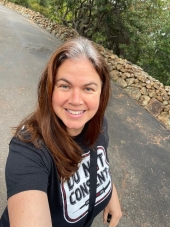
 2
2




$10.00 is a donation. $1,000 is an investment, $1,000,000 is a purchase.
 3
3




 2
2




 3
3




Earthworks are the skeleton; the plants and animals flesh out the design.
 5
5




I'm only 65! That's not to old to learn to be a permie, right?
 9
9




 11
11




Visit Redhawk's soil series: https://permies.com/wiki/redhawk-soil
How permies.com works: https://permies.com/wiki/34193/permies-works-links-threads
 1
1




 8
8





 8
8




Hans Albert Quistorff, LMT projects on permies Hans Massage Qberry Farm magnet therapy gmail hquistorff
 6
6




 2
2




Jane Mulberry wrote:If these are recent concussions, then rest is the #1 most important thing. Brain healing can't be rushed!
There are loads of other wonderful suggestions here which are helpful adjuncts to rest - diet, attention to gut flora, and lion's mane are things I find useful now. But there's no fast track to regaining brain health. Patience from the person with the TBI and patience from those around them is essential. Trying to rush recovery may seem to work at the time, but will increase the risk of long term consequences.
 4
4




Jay Angler wrote:I have a couple of friends struggling to heal from concussions who are looking for ways to support, speed up, or work around the results of concussions.
I know that brains can heal, and that they heal in several different ways, so I'll start with that. Maybe if people know more ways they can suggest them.
1. Brain cells that are injured repair themselves and start working again - this is the first process that happens over the first few weeks as swelling subsides.
2. Brain cells form new connections to work around damage in the immediate area. Heavily simplified, if you have 20 neurons that do X and 10 are killed, the dendrites from undamaged neurons may grow out to connect in new ways to other neurons to bypass the damaged ones. This takes longer than #1 - I was told months but are there things that can support that happening and help it continue for a longer period?
3. Brains can learn new pathways to bypass damaged areas. I used to work with stroke patients, so I saw this in action. Training, exercise, and a lot of willpower, but I saw patients regain skills long after any improvement from #1 was possible. I believe the old adage that brains require "work" just like muscles do to be strong, flexible and fit.
Also from my family history, I know a bit about how activities can heal brains. I have a son who had trouble crossing midline which affected his vision and his coordination and either caused or was concurrent with dyslexia. We did several "gymnastics for brains" programs including one called, Interactive Metronome, and they all helped in their own way.
What I don't know anything about are dietary, sleep, herbs, lighting etc that I know many permies know a lot about.
This thread is not about a single problem - it's about all the things that might help anyone who's suffered a head injury and is committed to getting better.
 5
5




 3
3




Analee Gomez wrote:I second Ty Glander suggestion about Keto and Intermittent fasting. But make sure you are doing it right, eat whole, nutrient dense foods, (liver, etc.) Don't be afraid to eat animal fats. Your brain is made of fat
 3
3




 4
4




 4
4




 5
5




Amanda Hara wrote:
The result was a feeling I can only describe as “thinking through molasses.”
 3
3




Like my shiny badges? Want your own? Check out Skills to Inherit Property!

 4
4











 2
2




Hans Albert Quistorff, LMT projects on permies Hans Massage Qberry Farm magnet therapy gmail hquistorff
 2
2




 1
1




Ashley Cottonwood wrote:I just wanted to comment that not all physiotherapists have the same training. There are lots of medical professional who have been trained in concussion protocol but not necessarily long-term rehabilitation.
I have a friend who is a physiotherapist who specializes in neurological injuries and diseases. I have another mutual friend who has been seeing her in order to improve her concussion symptoms and she has been seeing great results thus far.
Just a tib-bit of info!

|
You may have just won ten million dollars! Or, maybe a tiny ad.
The new gardening playing cards kickstarter is now live!
https://www.kickstarter.com/projects/paulwheaton/garden-cards
|





